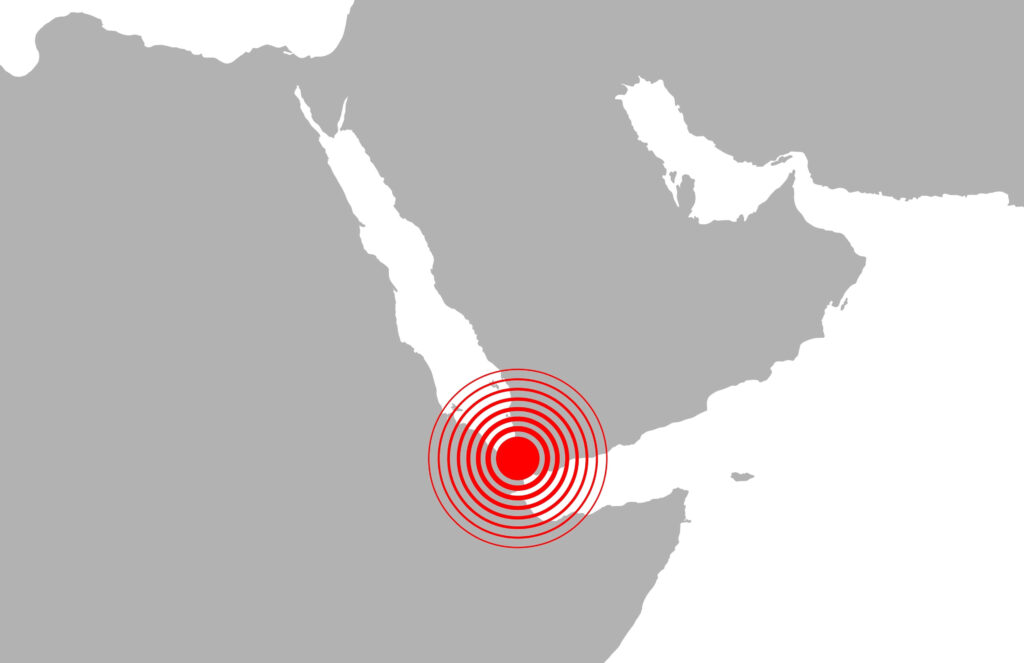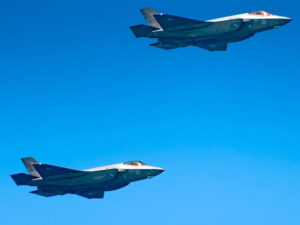The U.S. and the global trading community are confronting the 21st century version of the infamous Barbary pirates of the 18th and 19th centuries whose warships terrorized Mediterranean trade routes, captured ships and enslaved passengers and crew.
Today’s Barbary pirates are the Houthi rebels of Yemen, another powerful non-state actor, armed with modern weapons who attack the flow of international trade.
A decisive defeat of the pirates in the Second Barbary War of 1815 by the nascent U.S. Navy and Marine Corps ended their maritime campaign against U.S. ships. While the United States cannot and should not be in the business of fighting the Houthi movement in Yemen, U.S. joint forces can step up their operations and inflict significant defeats on the Yemen-based group to get them to cease attacks on merchant trade.
The Barbary wars of the U.S. Navy and Marine Corps
The so-called “Barbary pirates” were in fact a group of quasi-independent city states along the Mediterranean coast of North Africa who attacked maritime commerce passing near them for the purpose of acquiring wealth from plunder and the enslavement of the passengers and crews of the ships they seized.
Most European nations merely paid tribute to keep the pirates from attacking their ships but the costs became staggering over time. In 1795, for example, the U.S. protection money paid to the Sultan of Algiers alone was 20% of the U.S. government budget. The new republic decided to take military action to prevent this attack on free trade and mobilized naval forces to deploy to the Mediterranean and defeat the piracy menace. The pirate city of Tripoli became the primary focus of U.S. naval efforts in the first conflict and Algiers in the second.
It took two wars, one from 1801-1805 and a second from 1815-1816, to fully free U.S. commerce from the scourge of the Barbary pirates. The first conflict stimulated the building of the first six frigates of the U.S. Navy to include such famous vessels as USS Constitution, USS Constellation and USS Chesapeake that later participated in campaigns against the pirates.
The lesson to draw is that in the end, defeating Barbary pirate attacks and even raids on Barbary ports such as that which destroyed the captured U.S. warship USS Philadelphia were not enough to substantially stop the attacks.
Only direct attack on the Barbary pirates’ “center of gravity” in the ports they controlled and where their leadership was located compelled the pirates to substantively cease their shipping attacks.
Bolder action needed to defeat Houthi pirates
Thus far, U.S.-led action against the Houthis has been transactional. If Navy ships or aircraft detect Houthi missiles or drones, they down them as rapidly as possible with the best weapons available. This sometimes means downing a $20,000 drone with a $2.1 million missile.
If the U.S. detects missiles or drones ashore in Yemen about to be launched, then the U.S. and allies launch air and missile strikes to destroy those weapons. While a growing number of warships from several nations are offering to defend commercial ships, Houthi attacks continue. Like the Barbary pirates of the 1800’s, however, there is no strong incentive yet to force the Houthis to change their calculus and stop the attacks.
The threat from Houthi weapons should not be minimized. Wayne Hughes, a naval tactics instructor at the Naval Postgraduate School, said that even the best defenses might be penetrated by “leaker” missile weapons that evade defenses even as good as the U.S. Aegis combat systems. A simple misalignment or electronic fault in a systems onboard a warship, as was the case onboard the British destroyer HMS Sheffield during the 1982 Falklands War, or even a momentary lapse in readiness in a tired crew can prove deadly. The longer U.S. warships remain on station engaged in extended combat with drones and cruise missiles in the Red Sea, the likelihood of a “leaker” missile or drone penetrating U.S. defenses grows. These operations cannot go on for long periods in the absence of a plan for their resolution.
The Barbary pirates were only stopped when U.S. and U.K. naval forces threatened their leadership by sailing into pirate cities and bombarding them. Similar tough measures are now required to equally halt Houthis attacks.
Nations in support of free global trade should consider a range of bolder actions that target the leadership of the Houthi movement and their benefactors. They could employ more aggressive military options that destroy, rather than just degrade the Houthi missile capability, including the implementation of a no-fly zone above Houthi-controlled areas of Yemen, and blockades of Houthi-controlled seaports. Direct action against Houthi leadership might also better get the attention of these modern pirates to let them know they are not invulnerable to attack.
The U.S. and its allies could also consider action against Iran as the enabler of the Houthi missile capability, including the interdiction of Iranian aircraft and ships trying to enter Houthi territory, or the destruction of Iranian naval units in the area (the auxiliary Beshshad and the frigate Alvand,) that have been accused of providing targeting data to Houthi missile batteries ashore.
In any case, like the Barbary pirates, the Houthis have shown resistance in the face of expeditionary seapower efforts to stop their missile attacks, and a higher level of force is needed to deter them. It may take a major U.S. attack on the Houthis or on the naval units of their Iranian enablers to get them to desist from their anti-shipping campaign.
Saving international trade from bandits
Yemen has been as much a quagmire for empires as have been Vietnam, Iraq and Afghanistan over the years, and it would not be wise to deploy ground forces against the Houthis.
But unlike previous never-ending wars in the region, free trade and the costs associated with it are directly under threat. This condition makes the Houthi situation stand apart from past U.S. Middle East interventions, excepting perhaps the Tanker War of the 1980’s where the U.S. was also involved in securing the free trade that sustains the global economy.
If the kind of banditry practiced by the Houthis is not quickly eliminated, it could spread to other key maritime chokepoints where other bad actors might seek to hold international trade hostageto their whims.
Just like at the outset of U.S. history, the United States and other nations that depend on global trade must take aggressive action to stop Houthi missile attacks on free commerce.







